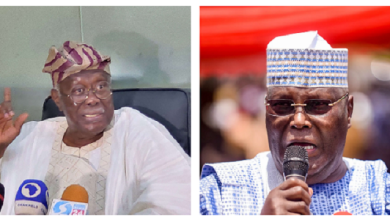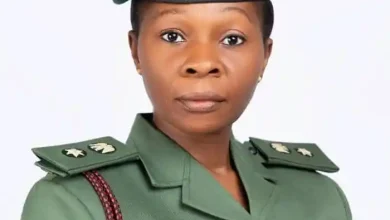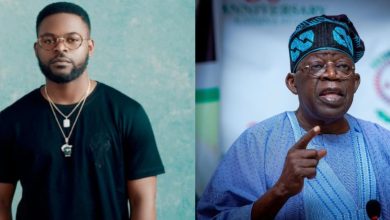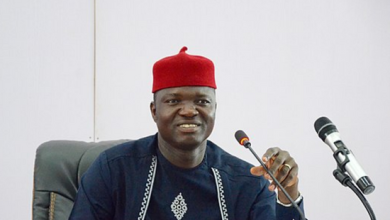DSS Rejects Claims of Role in Nnamdi Kanu’s Arrest in Kenya
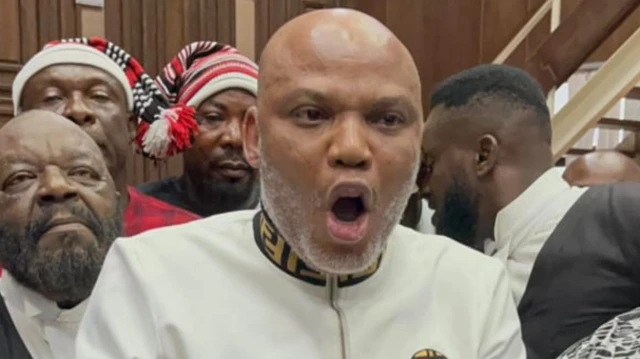
Declaring that its activities are strictly limited to Nigeria’s borders, the Department of State Services (DSS) has disassociated itself from the contentious arrest of Nnamdi Kanu, the leader of the Indigenous People of Biafra (IPOB), in Kenya.
According to reports, this clarification was made during the cross-examination of a prosecution witness—a DSS intelligence officer known by the code name BBB.
When BBB testified, he was questioned about the DSS’s suspected involvement in Kanu’s arrest as well as its capacity to function outside of Nigeria.
He was adamant that the DSS exclusively works inside Nigeria’s boundaries and that it does not have the authority to make arrests outside of the country.
Claims that BBB was behind Kanu’s kidnapping in Kenya were refuted when the organization stated, “We do not have the powers to effect arrest beyond Nigeria’s borders.” Kanu had stated in 2021 that he had been “kidnapped” from Kenya and brought back to Nigeria by force.
The witness also explained the DSS’s organizational structure, pointing out that it functions independently of political influence and is housed under the National Security Adviser’s (NSA) office.
BBB responded that the Attorney General does not oversee the DSS’s operations, reaffirming the agency’s independence when questioned if politicians or ministries may have an impact on it.
BBB clarified that the DSS uses a variety of sources for intelligence collection, such as social media, human intelligence, and other channels, and that its agents are properly educated to obtain information as required.
Read Also: Mercy Aigbe Speaks Out: The Emotional Toll of Single Motherhood
Upon closer examination, the DSS witness connected Kanu’s Radio Biafra broadcasts to inciting violence, particularly during the 2020 EndSARS demonstrations. Kanu had announced his willingness to use any methods, including armed conflict, to achieve the establishment of Biafra, according to BBB.
According to the witness, Kanu’s provocative remarks also played a role in events like the burning of the Lagos State High Court, a police station in Ebonyi State, and the cargo shed at Murtala Mohammed Airport in Lagos.
At one point in the proceedings, defense attorney Paul Erokoro asked for an extension so they could submit a video clip they planned to use as evidence.
The court granted the plea and admitted certified true copies of the rulings in three cases pertaining to the enforcement of fundamental rights that Nnamdi Kanu had filed in different venues, including the High Court of Enugu State, the Federal High Court in Umuahia, and the Abia State High Court.
The trial judge, Justice James Omotosho, opened the day’s proceedings by issuing a warning about unlawful use of social media and live streaming of court proceedings.
In particular, the judge warned defense team member Aloy Ejimakor not to share false information on social media.
Concerns regarding the unlawful live streaming of the trial were voiced by lead defense attorney Kanu Agabi, who specifically cited Ejimakor’s conduct. In order to stop more infractions, Agabi proposed that cell phones be prohibited in courtrooms.
The issue is too serious to be trivialized, Justice Omotosho responded, stressing the value of professionalism throughout the trial. Further misbehavior could result in disciplinary action, including possible disbarment, he cautioned Ejimakor.
For the benefit of all parties, particularly Nnamdi Kanu, who has been detained for a long time, Justice Omotosho reiterated in her closing remarks the necessity of an expeditious hearing. The second prosecution witness’s cross-examination was completed, thus the case was postponed until Thursday, May 22.

